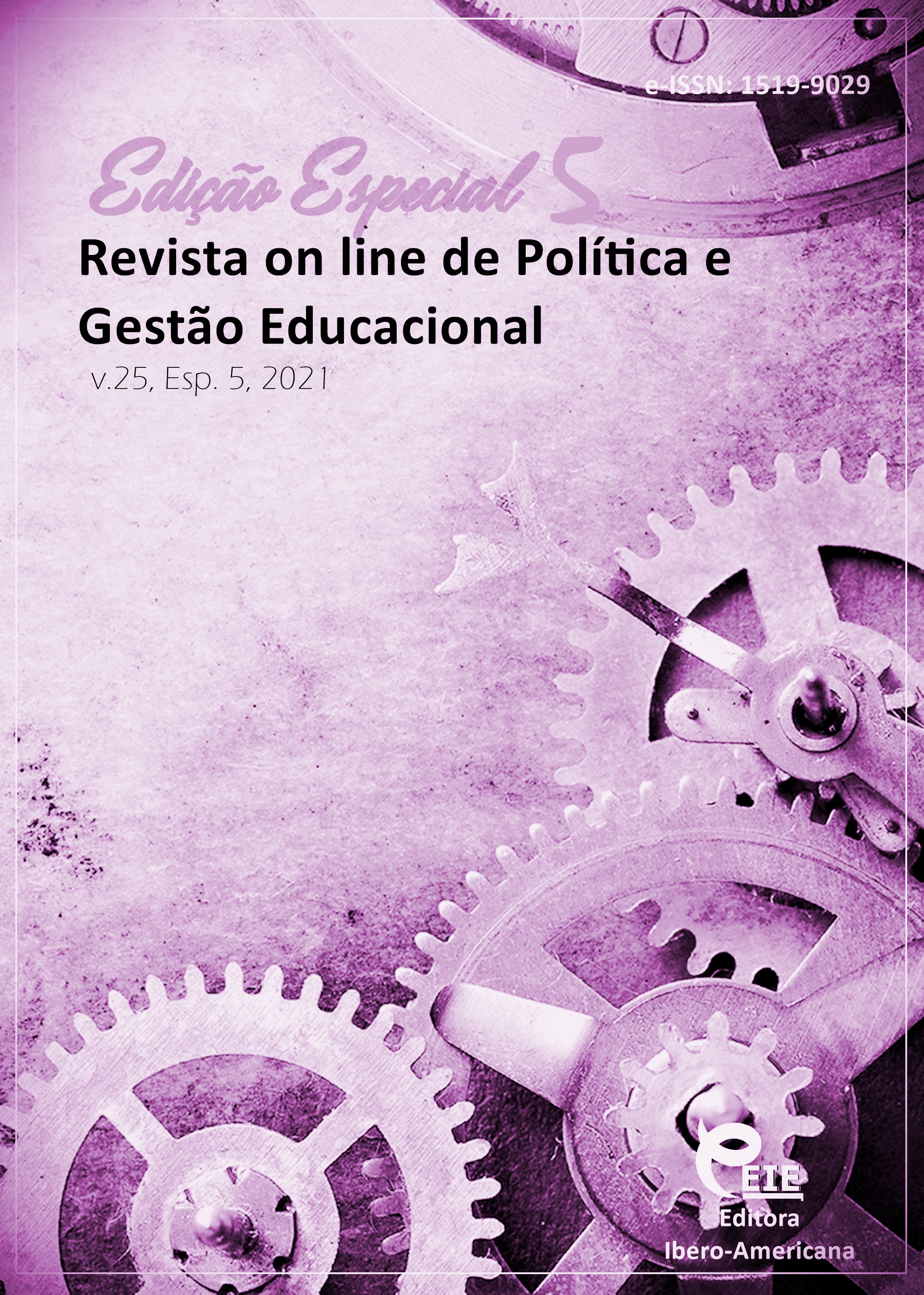Genesis of the education system in the context of the wave theory of E. Toffler
DOI:
https://doi.org/10.22633/rpge.v25iesp.5.15992Keywords:
Typology of the state, Social formation, Subjects of educational activity, Management of educationAbstract
The purpose of the research is to determine the patterns of development of the system of Russian and foreign education in the context of scientific approaches to the typology of the state. Consider the features of the genesis of education in the wave theory of socio-cultural development of E. Toffler. Methodology: in the process of research, methods of comparative analysis, cyclicity, intersectoral synthesis, theoretical and legal modeling, historical and legal reconstruction, as well as other methods of scientific knowledge were used. Education, as a product of the State and an instrument of State influence on the consciousness and behaviour of the population, is directly dependent on the peculiarities of the State structure and the objectives of which the State is guided in the process of organizational and managerial activity, the methods of interaction of the State with society, local social corporations and individual citizens/subjects.
Downloads
References
ANDERSON, T. Getting the mix right again: An updated and theoretical rationale for interaction. International Review of Research in Open and Distance Learning, v. 4. n. 2, p. 1–14, 2003.
BAKSHTANOVSKY, V. I.; SOGOMONOV, YU. V. "Spirit of the University": design-oriented institutionalization in the ethical code of a scientific and educational corporation. Vedomosti, no, 33. p. 41-154, 2008.
DINAN, D. Ever Closer Union: An Introduction to European Integration. Great Britain: Macmillan Press Ltd., 1999.
GROMOVA, E. M.; BERKUTOVA, D. I.; GORSHKOVA, T. A. Influence of information culture on the design of career strategy. Professional education in Russia and abroad, v. 2, n.34, p. 7-17, 2019.
HILTZ, S. R. The virtual classroom: Learning without limits via computer networks. Norwood, NJ: Ablex Publishing Corporation, 1995.
KOCHERGIN, D. G.; ZHERNOV, E. E. Experience of digitalization of higher education in the USA. Professional education in Russia and abroad, v. 2, n. 34, p. 17-27, 2019.
LEVADA CENTER. Levada Center: 53% of young Russians want to emigrate. This is the highest rate since 2009. Disponível em: https://novayagazeta.ru/news/2019/11/26/157202-levada-tsentr-53-molodyh-rossiyan-hotyat-emigrirovat-eto-samyy-vysokiy-pokazatel-s-2009-goda. Acesso em: 25 abr. 2021.
RADFORD, A. W. Learning at a Distance: Undergraduate Enrollment in Distance Education Courses and Degree Programs. 2011. Disponível em: https://nces.ed.gov/pubs2012/2012154.pdf. Acesso em: 25 abr. 2021.
ROMASHOV, R. A.; SALNIKOV, V. P. Politogenez: The temple - Πόλις - Gosudarstvo - State. St. Petersburg: Aleteia, 2020, p. 14.
ROSAMOND, B. Theories of European Integration. Great Britain: Palgrave Publishers Ltd., 2000.
STEPHANOU, C. A. The Legal Nature of the European Union. Legal Aspects of Integration in the European Union. London: Kluwer Law International, 1997, p. 171–185.
SUSHKOVA, YU. N. European studies: current state, problems and prospects. Integration of education, n. 4, p. 26-36, 2014.
TOFFLER, A. The Third Wave. London, Pan Books Ltd, 1981.
Published
How to Cite
Issue
Section
License
Copyright (c) 2021 Revista on line de Política e Gestão Educacional

This work is licensed under a Creative Commons Attribution-NonCommercial-ShareAlike 4.0 International License.
Manuscritos aceitos e publicados são de propriedade da Revista on line de Política e Gestão Educacional. É vedada a submissão integral ou parcial do manuscrito a qualquer outro periódico. A responsabilidade do conteúdo dos artigos é exclusiva dos autores. É vedada a tradução para outro idioma sem a autorização escrita do Editor ouvida a Comissão Editorial Científica.











